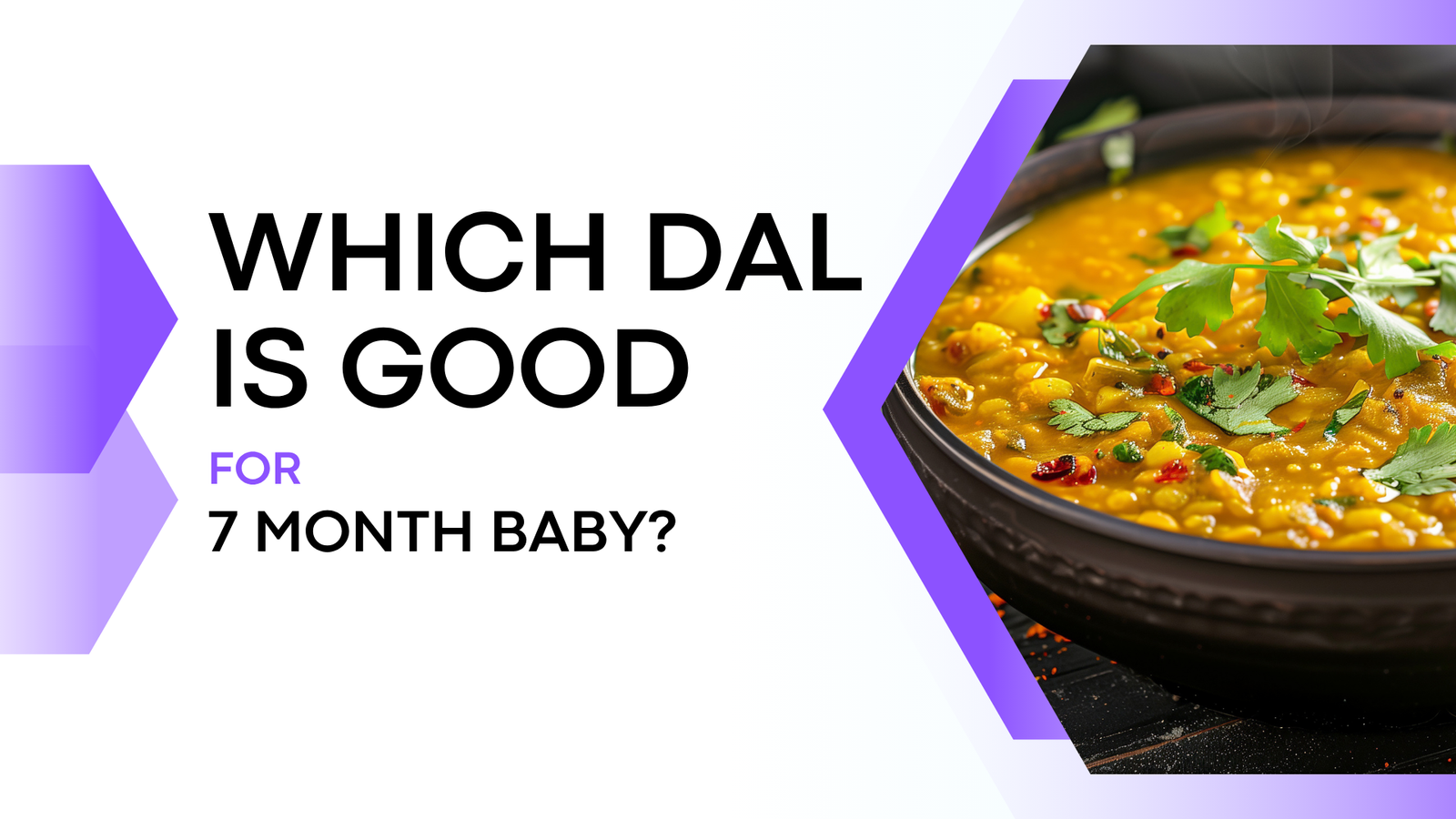When your baby turns seven months, every meal becomes an opportunity to nurture growth and development. One of the most commonly recommended foods for this stage is dal (lentils) — a protein-rich, easily digestible option packed with essential nutrients. But with so many varieties available, parents often ask, “Which dal is good for 7 month baby?”
This article will guide you through the benefits of dal for infants, including the most suitable types, how to prepare it safely, and why choosing the KidsCur App can make your parenting journey simpler and more informed.
Is Dal Healthy for Infants?
Yes, dal is one of the best foods you can introduce to your 7-month-old baby.
Here’s why it’s considered so beneficial:
- Rich in Protein: Helps in muscle and tissue growth during rapid developmental phases.
- Packed with Iron and Folate: Essential for blood formation and brain development.
- Easy to Digest: When cooked and mashed properly, dal is gentle on your baby’s stomach.
- Supports Cognitive Growth: B vitamins in dal promote healthy brain function.
Dal is not just filling — it’s also versatile, allowing you to mix it with rice, vegetables, or even purees for balanced nutrition.
What Dals Are Appropriate for Infants?
At 7 months, your baby’s digestive system is still developing. So, not all dals are suitable right away. Here are the top recommendations:
1. Moong Dal (Yellow Split Lentil)
- Best for: First-time dal feeding
- Why: Light, easy to digest, and rarely causes gas or bloating
- How to Prepare: Cook thoroughly with extra water, mash or blend it into a thin consistency
2. Masoor Dal (Red Lentil)
- Best for: Babies used to moong dal
- Why: Soft texture, high in protein, and iron-rich
- How to Prepare: Pressure cook and strain to remove husk before serving
3. Toor Dal (Pigeon Pea Lentil)
- Best for: Babies above 8 months (gradual introduction)
- Why: Heavier than moong dal but very nutritious
- How to Prepare: Soak before cooking and serve with rice or mashed vegetables
4. Urad Dal (Black Gram Lentil)
- Best for: Older babies (after 9 months)
- Why: High in protein and calcium, but can cause gas in younger infants
Avoid: Chana dal (Bengal gram) or rajma (kidney beans) for now — they’re harder to digest for 7-month-olds.
Which Dal Is Best for Newborns: How Will You Choose?
When deciding which dal is good for 7 month baby, consider the following:
- Digestibility: Choose lighter dals like moong dal to start with.
- Allergies: Introduce one dal at a time and monitor for any allergic reactions.
- Texture: Ensure the dal is well-cooked and smooth. No whole lentils or thick consistency.
- Combination: Start with dal water, then move to dal puree or khichdi.
Pro tip: Always consult your pediatrician before introducing new foods, especially proteins like lentils.
How to Introduce Dal to a 7-Month-Old Baby?
Follow this gentle, step-by-step method:
- Start with Dal Water:
- Strain the cooked moong dal and offer the clear liquid.
- This helps your baby adjust to the flavor and nutrients.
- Move to Dal Puree:
- After 4–5 days, mash the dal and feed it as a thicker puree.
- Combine with Rice or Vegetables:
- Make a light khichdi for added taste and energy.
- Avoid Salt and Spices:
- Babies’ kidneys are still developing; keep meals simple.
- Feed Small Quantities:
- Begin with 1–2 teaspoons once a day, increasing gradually.
Homemade Dal Recipes for 7-Month Babies
Here are the homemade dal recipes for 7 month babies:
Moong Dal Puree
- Ingredients: 2 tbsp yellow moong dal, 1 cup water
- Method: Pressure cook for 3–4 whistles, blend into a smooth puree.
Moong Dal Khichdi
- Ingredients: Moong dal, rice, water
- Method: Cook until soft, mash, and serve warm.
Masoor Dal Soup
- Ingredients: Red lentil, carrot puree, water
- Method: Cook until soft and strain. Serve lukewarm.
These simple recipes are packed with protein, iron, and flavor — perfect for growing babies.
Advantages of Feeding Dal to Babies
The advantages of feeding dal to babies are:
Nutrient-Dense: Provides essential amino acids, iron, and vitamins
Improves Immunity: Rich in antioxidants and zinc
Supports Growth: A natural source of plant-based protein
Versatile: Can be combined with cereals and vegetables
Possible Disadvantages or Precautions
The precautions are as follows:
Gas Formation: Some dals like urad or toor may cause bloating initially.
Overfeeding: Too much protein can strain the baby’s kidneys.
Undercooked Lentils: Can be difficult to digest.
Always start small, observe your baby’s response, and consult your pediatrician when in doubt.
Why Choose KidsCur for Baby Nutrition Guidance?
When introducing solids like dal, parents often need trusted, personalized guidance — that’s where KidsCur helps. The other features of the app are:
- Expert Pediatric Advice: Get tailored feeding and growth recommendations.
- Milestone Tracking: Monitor your baby’s development easily.
- Nutritional Tips: Learn which foods suit each age group.
- Vaccination Reminders: Never miss important pediatric appointments.
With KidsCur, you don’t have to rely on guesswork — get expert-backed, reliable information about your baby’s health and nutrition. Download the KidsCur App today to make feeding, tracking, and parenting simpler and smarter!
FAQs
What is the importance of feeding dal to babies?
Dal provides essential proteins, vitamins, and minerals necessary for your baby’s growth, muscle development, and overall health.
How to choose the right dal for my baby?
Start with light dals like moong or masoor dal. Gradually introduce other types once your baby’s digestion strengthens.
How often can I feed dal to a 7-month-old?
You can give dal once daily in small quantities. Gradually increase frequency as your baby gets used to solids.



